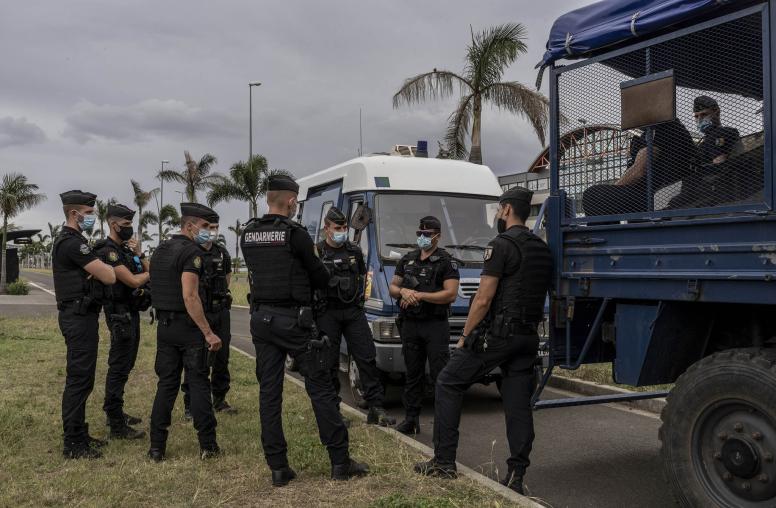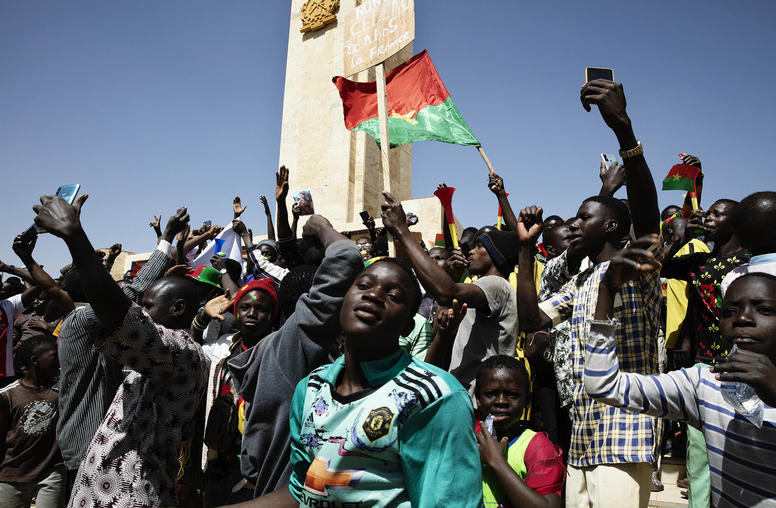Building Peaceful, Just and Inclusive Societies Amid a World on Fire
Mobilizing the International Community to Achieve SDG16+
This event, originally scheduled for January 9, has been rescheduled for March 6.
Civil wars have been on the rise in recent years, causing immense suffering, from mass atrocities to famine, and historic numbers of displaced people. Violence is endemic in many urban centers, while the lives of large numbers of women and children are shaped by their experience of violence in situations of fragility. Through the 2030 Agenda for Sustainable Development, all governments have committed to fostering peaceful, just and inclusive societies which are free from fear and violence. How can diverse communities working on prevention, peacebuilding, rights, and governance mobilize to implement this global framework for tackling violence and fragility?
As we recently celebrated the 70th anniversary of the Universal Declaration of Human Rights, we are conscious that violent conflicts cause unacceptable levels of civilian casualties, atrocities and abuses in fragile states. Disparities run deep and are intensified by conflict and violence. The most unequal societies are often the most violent. Weak institutions, rampant corruption, and high levels of exclusion fuel insecurity and damage communities and economies. More than half of the world’s poorest people are projected to live in fragile states by 2030.
Sustainable Development Goal 16.1 promises to “significantly reduce all forms of violence” everywhere, but lethal violence is expected to rise by 2030 according to current trends. This is not inevitable. We have compelling evidence to show that conflict and violence can be prevented through multisectoral action to resolve disputes, strengthen institutions, tackle exclusion, and invest in human potential.
At a time of global peril, join the Carnegie Mellon University's Heinz College of Information Systems and Public Policy in Washington, New York University’s Center on International Cooperation, and the U.S. Institute of Peace for a lively panel discussion on how to mobilize behind a roadmap that will put peace at the heart of the 2030 Agenda. Take part in the conversation on Twitter with #SDG16.
Speakers
Laura E. Bailey
Global Lead, Stability Peace and Security, SURR Global Practice, World Bank Group
Ambassador Sarah Mendelson
Distinguished Service Professor of Public Policy, and Head of Carnegie Mellon University's Heinz College of Information Systems and Public Policy in Washington
Daniel Nagin
The Teresa and H. John Heinz III University Professor of Public Policy and Statistics, Carnegie Mellon University's Heinz College of Information Systems and Public Policy
Maria Stephan
Director of the Program on Nonviolent Action, U.S. Institute of Peace
David Steven
Senior Fellow and Associate Director, New York University’s Center on International Cooperation
The Honorable Nancy Lindborg, moderator
President & CEO, U.S. Institute of Peace



